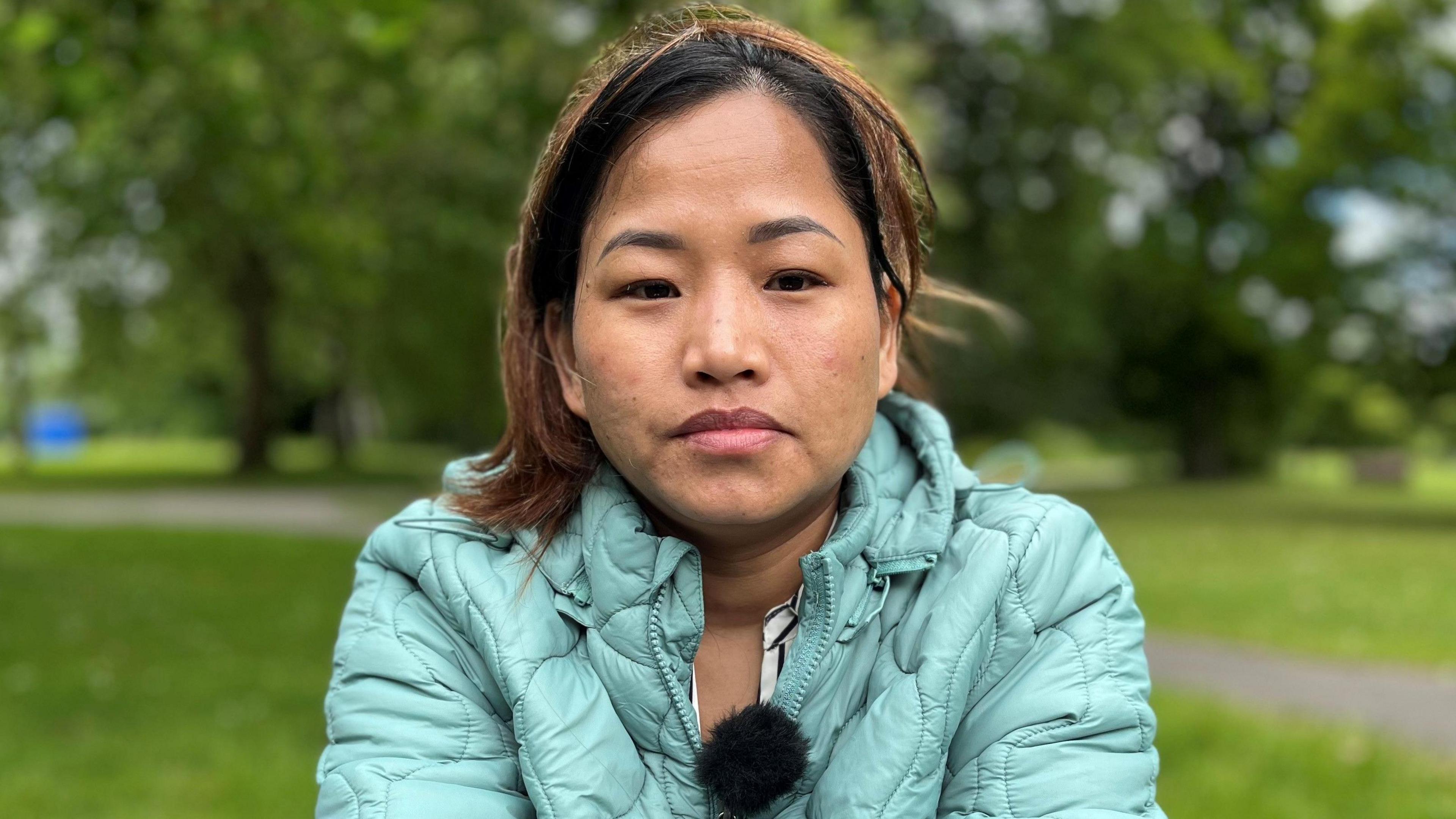'Rare birthmark caused my child's brain bleed'
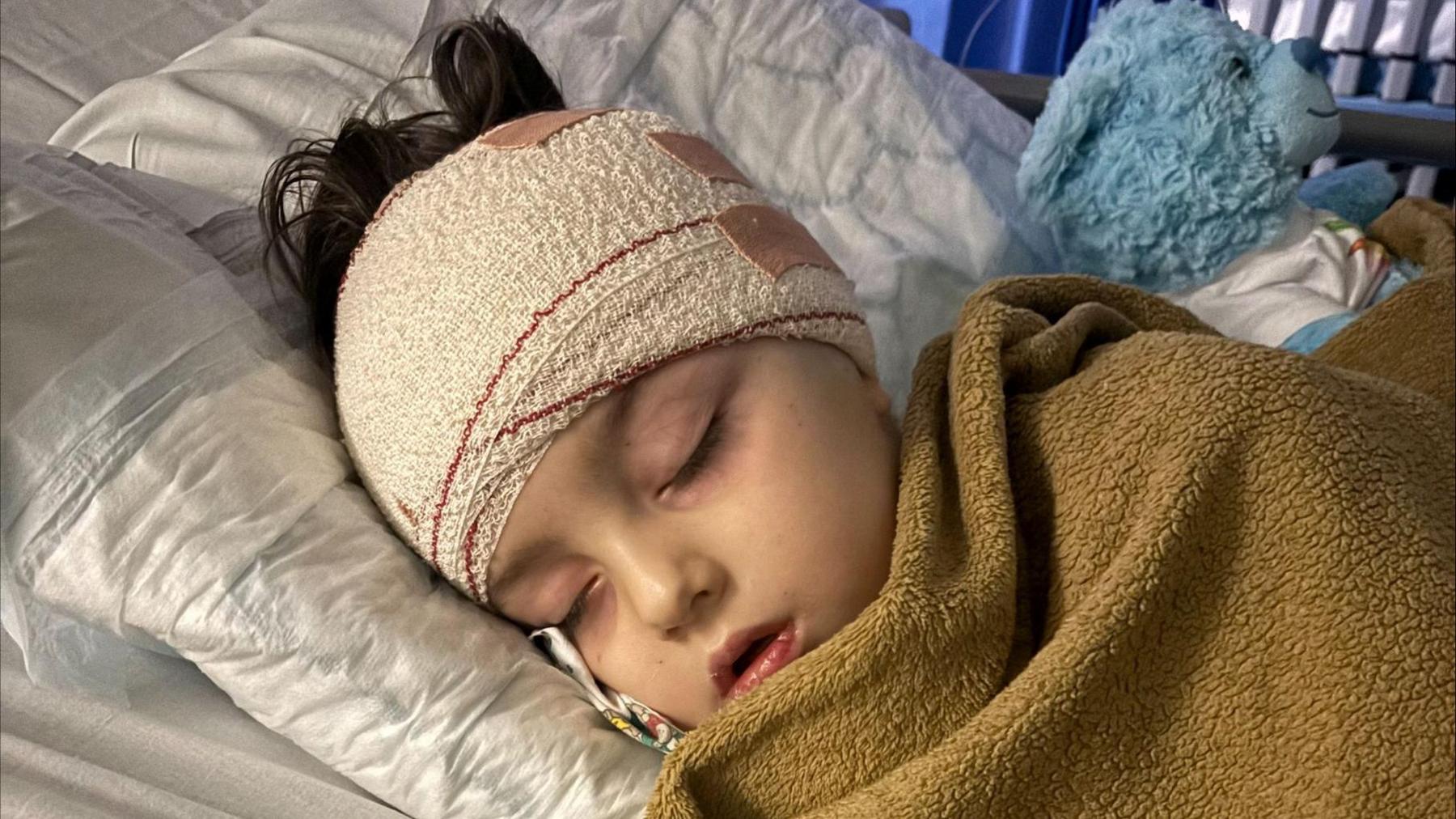
Blake, pictured recovering from her surgery, is now relearning how to walk, climb and write
- Published
A mum was shocked to be told her four-year-old daughter's internal bleeding was being caused by a "super rare" birthmark on her brain.
At two years old, Blake was left partially paralysed on her right side due to a strawberry birthmark (haemangioma) on her brain and needed to relearn how to walk, climb and write with her left hand.
Last month, the mass bled again and her progress was lost. Mum Abbie, from Maldon, Essex, said her NHS physiotherapy sessions were only every few months, and she wanted to improve her recovery by going private.
A Department of Health and Social Care (DHSC) spokesperson said it was taking action to strengthen physiotherapy services.
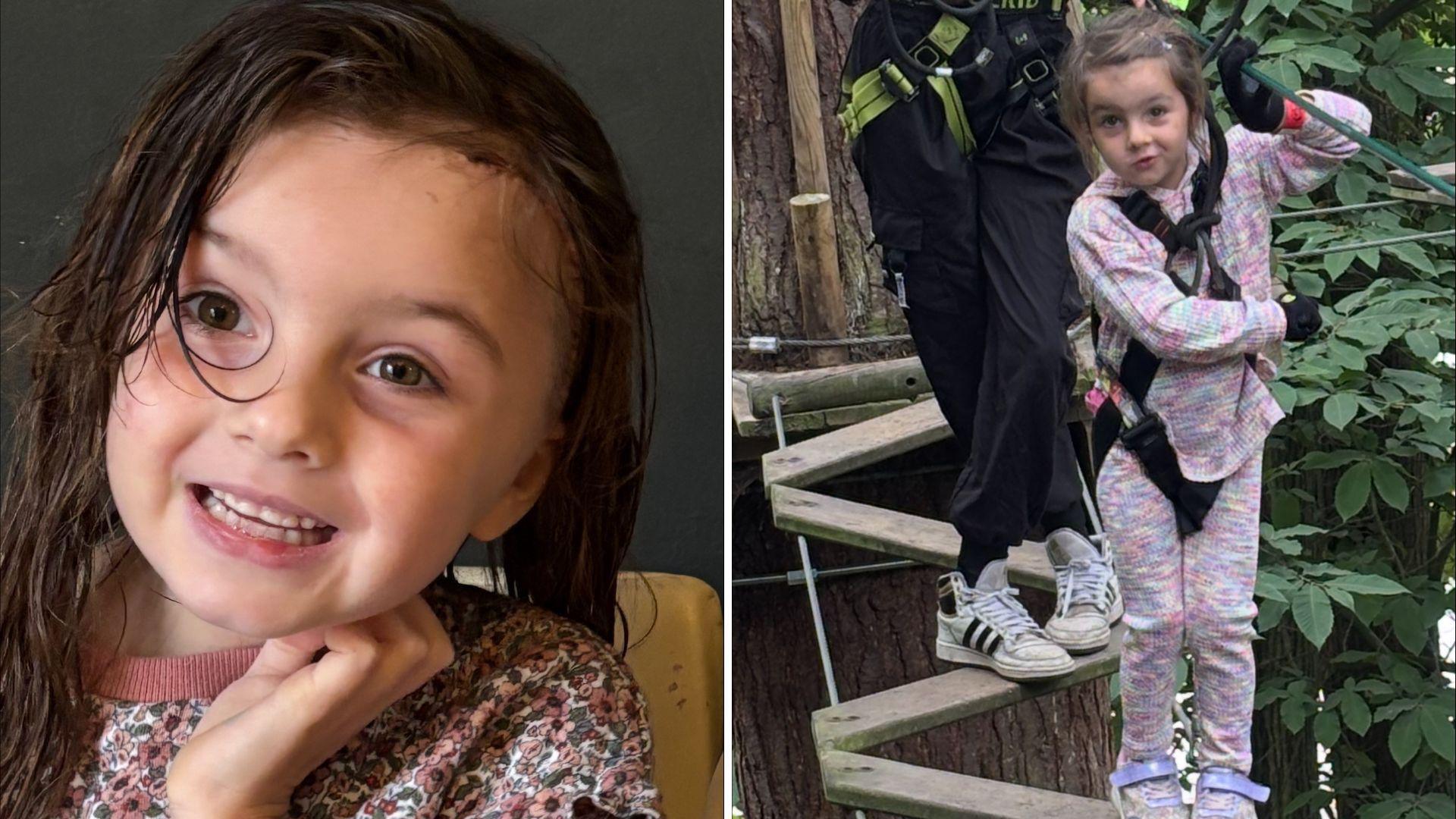
Abbie described her Blake as "a very active, happy and adventurous girl"
"She'd just started doing horse riding and swimming and gymnastics, and now we're kind of back to square one again, unfortunately," said Abbie.
In June last year, she first noticed her daughter's speech and balance was off. By the end of the day, Blake was unable to walk
A CT scan revealed a mass that was bleeding into her brain, but surgeons decided not to operate and instead focus on recovery.
Within a month, the mass - the size of a satsuma - bled again and she was operated on. Surgeons discovered the haemangioma on her brain and removed it.
Abbie told Ben Fryer on BBC Essex: "It's super rare, apparently. The surgeon that operated on her said she's the fifth one that he's ever seen, and he's the most experienced in the world."
'Out-of-body experience'
Blake was left with weakness on the right side of her body but appeared to be recovering until last month.
Suffering headaches, loss of balance and uneven pupils, she was taken to hospital where a small part of the haemangioma was found to have remained.
"It's like an out-of-body experience," said Abbie.
"You're kind of sat in the hospital for weeks and you feel like the whole world's just stopped, but life just goes on.
"Bless her, she's doing amazing. I think she's seeing me through it, more than I'm seeing her through it, to be honest.
"She was two when the first one happened. I think she is taking it in her stride, really well and where she's so young her brain should be able to rewire, and she can hopefully make a full recovery."
Now, they await results to confirm that the mass has disappeared, alongside medication that shrinks external haemangioma in babies.
However, it is not known how effective it will be for older, internal masses.
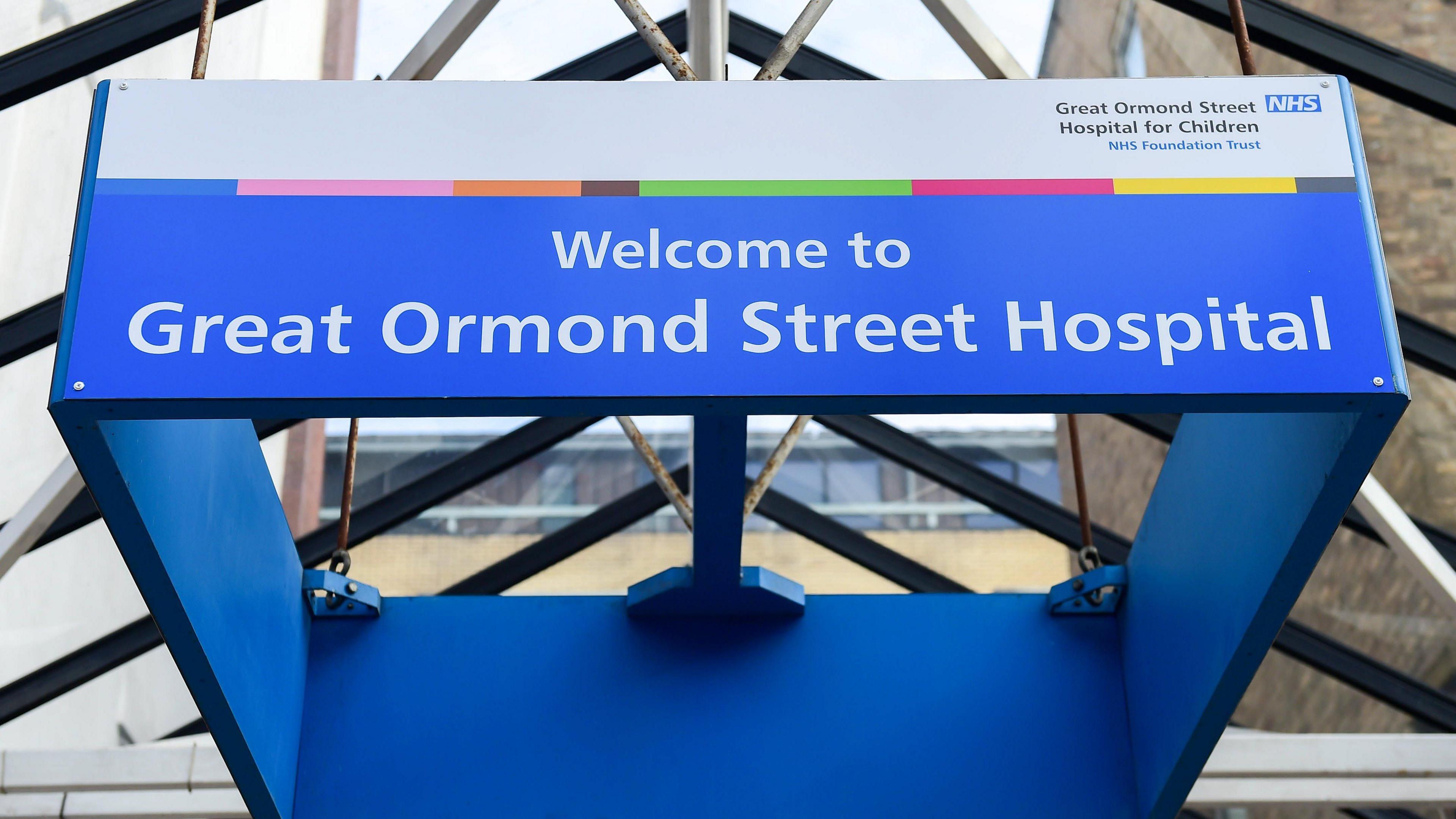
According to Great Ormond Street Hospital for Children, external, about one in every 10 babies will have a haemangioma.
They are more common in girls; following IVF; in premature and low birth weight babies; and multiple births. They are not inherited.
They can appear anywhere on the body, but most appear on the head or neck. They can also appear on internal organs, most commonly the liver.
Blake is back where she started since the latest bleed, but Abbie wants to increase the frequency of her physiotherapy sessions, which are currently "once every few months" under the NHS and is raising money to pay for private sessions.
Grainne Bellenie, chair of the Birthmark Support Group, said: "We cannot comment on the details of this individual case, but it is an important reminder that birthmarks are far more than the small marks people often imagine.
"Some can be internal and in rare cases, have serious and complex effects. Our charity is here to support families through the emotional impact, provide trusted information, and work with clinicians to raise awareness of the full spectrum of birthmarks so no family ever feels they are facing this alone."
A DHSC spokesperson said: "We are sorry to hear about the experiences of Blake and her family.
"Backed by our record investment in the NHS, this government is making significant progress in turning around more than a decade of neglect in our health service.
"Through our 10 Year Health Plan, we're taking action to strengthen physiotherapy services - through improving local access and making sure patients can get the rehabilitation they need without delay."
Get in touch
Do you have a story suggestion for Essex?
Follow Essex news on BBC Sounds, Facebook, external, Instagram, external and X, external.
Related topics
More related stories
- Published21 September
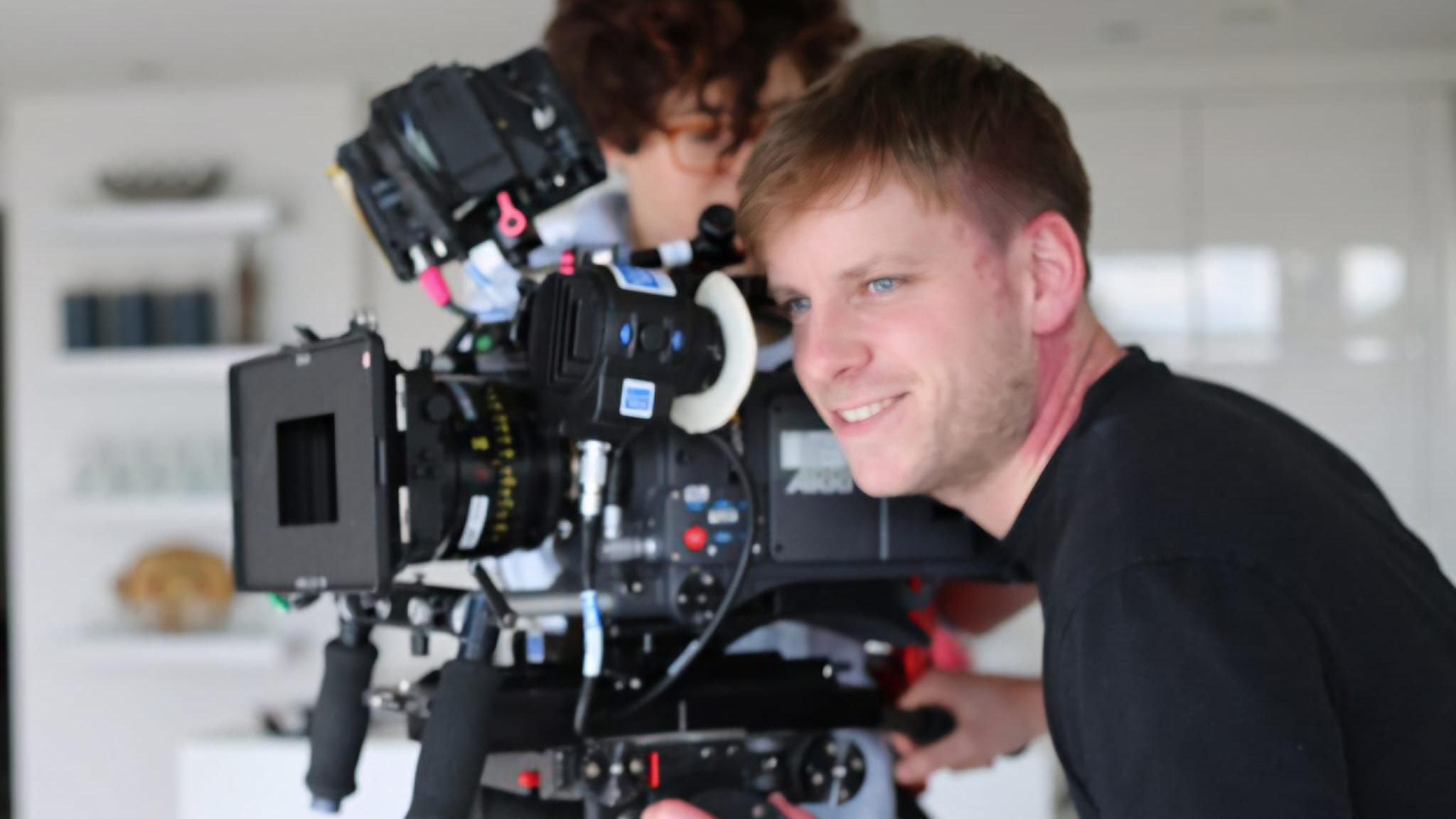
- Published11 July 2024
